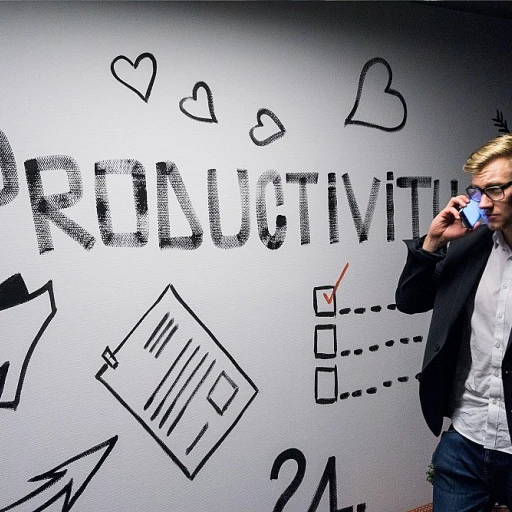
Understanding the Role of a Chief Human Resources Officer
Defining the Essential Functions of HR's Senior Leadership
In the complex landscape of modern business, the position of a Chief Human Resources Officer (CHRO) holds critical importance. Serving as a strategic partner to executive leadership, the CHRO plays a pivotal role in shaping organizational success through effective talent management and innovative HR strategies. CHROs are tasked with fostering a productive workplace that adheres to ethical standards, championing values like professionalism, and promoting a culture where both individuals and teams can thrive. They need to balance strategic vision with day-to-day operational demands, requiring skills in professional coaching to guide their team and colleagues effectively. Whether leading efforts to implement a coaching culture or navigating conflicts of interest, the CHRO's responsibilities are both diverse and dynamic. To aid career advancement and establish an influential presence in the workplace, CHROs often employ key skills such as:- Critical thinking: Vital for assessing and implementing effective HR policies.
- Professional learning: Ensuring ongoing development and adherence to the highest ethical conduct and code ethics.
- Coaching and professionalism: Robust strategies for advancing team motivation and individual career coaching.
The Importance of Coaching Professionalism in HR Leadership
The Power of Professionalism with the Right Coaching Skills
In the dynamic landscape of human resources, coaching has evolved into a critical skill set that enhances the capabilities of chief human resources officers (CHROs). As a part of their leadership roles, CHROs have the responsibility to foster a professional environment where both employees and the organization thrive. At the heart of this undertaking is the art of coaching, a skill that demands professionalism as its foundation. Professionalism in coaching is not just about guiding employees; it's about embodying the values and ethical standards that define the coaching profession. These ethical standards, often guided by frameworks like the International Coach Federation (ICF), provide a code of ethics that shapes the work of HR coaches. By adhering to these guidelines, CHROs ensure that their coaching practices maintain integrity and respect for the coaching relationship. One of the key aspects of professionalism in coaching is understanding and managing conflicts of interest. CHROs have to balance the needs of individual clients and the broader organizational goals, ensuring that their coaching sessions remain unbiased and ethical. This delicate balance calls for critical thinking skills, as CHROs navigate complex workplace dynamics and personal coaching challenges. Moreover, professional coaching isn't limited to immediate challenges; it's about supporting a long-term career trajectory for both employees and the organization. Career coaching by CHROs involves fostering a culture of professional learning, encouraging employees to pursue personal and career growth. By promoting a future-oriented mindset, CHROs help their teams align personal aspirations with organizational success. The professionalism HR leaders bring to coaching not only benefits individual employees but also shapes the entire workplace culture. By setting ethical standards and maintaining a professional demeanor, CHROs cultivate an environment where employees feel valued and motivated. This positive atmosphere, in turn, contributes to higher productivity and a stronger organizational reputation. To learn how exploring a career in sales enablement can further enhance your HR strategies, click here.Key Skills for Effective Coaching in HR
Essential Skills for HR Coaching Excellence
To excel as a Chief Human Resources Officer, mastering the art of coaching is crucial. This involves a blend of skills that not only enhance personal growth but also drive organizational success. Here, we delve into the key skills that form the backbone of effective coaching in HR.
- Active Listening: A cornerstone of professional coaching, active listening involves fully concentrating, understanding, and responding to employees. This skill helps in building a strong coaching relationship and ensures that clients feel heard and valued.
- Critical Thinking: HR leaders must employ critical thinking to analyze situations and make informed decisions. This skill is vital in resolving conflicts of interest and ensuring ethical conduct within the workplace.
- Emotional Intelligence: Understanding and managing emotions is key to fostering a positive workplace environment. Emotional intelligence helps in navigating complex interpersonal dynamics and enhances the effectiveness of coaching sessions.
- Ethical Standards: Upholding a code of ethics is non-negotiable in the coaching profession. Adhering to ethical standards ensures that the coaching process remains transparent and trustworthy, aligning with the International Coach Federation (ICF) guidelines.
- Communication Skills: Clear and effective communication is essential for conveying ideas and feedback. This skill helps in establishing a professional coaching environment where employees feel comfortable sharing their thoughts and concerns.
- Adaptability: The ability to adapt to changing circumstances and diverse client needs is crucial. Adaptability ensures that HR leaders can tailor their coaching approach to suit individual and organizational goals.
- Professional Learning: Continuous learning and development are vital for staying updated with the latest trends and practices in the coaching profession. Engaging in professional learning opportunities helps HR leaders refine their coaching skills and enhance their career coaching capabilities.
By cultivating these skills, Chief Human Resources Officers can effectively build a coaching culture within their organizations, ultimately leading to improved team performance and organizational success. For more insights on how fractional HR roles can support this journey, explore the role of fractional human resources in modern organizations.
Building a Coaching Culture in the Workplace
Fostering a Coaching Environment
Building a coaching culture in the workplace is essential for Chief Human Resources Officers (CHROs) aiming to enhance both personal and professional growth among employees. A coaching culture encourages continuous learning and development, aligning with the ethical standards of the International Coaching Federation (ICF). This approach not only supports career coaching but also strengthens the overall professionalism within the organization.
Integrating Coaching into Daily Work
To effectively integrate coaching into the workplace, CHROs should focus on embedding coaching practices into daily work routines. This involves training managers and team leaders to act as coaches, helping their teams navigate challenges and develop critical thinking skills. By doing so, employees are more likely to engage in professional learning and embrace the coaching profession as a valuable part of their career development.
Establishing Ethical Standards
Ethics and professionalism are cornerstones of a successful coaching culture. CHROs must ensure that all coaching relationships adhere to a strict code of ethics, preventing conflicts of interest and maintaining ethical conduct. This commitment to ethical standards will help build trust between coaches and their clients, fostering a positive and productive coaching environment.
Encouraging Professional Development
Professional coaching should be seen as a pathway to career advancement. By offering regular coaching sessions and providing access to professional coaches, organizations can support employees in achieving their career goals. This not only benefits the individual but also enhances the overall performance of the team, contributing to the organization's success.
Promoting a Supportive Coaching Relationship
Finally, a supportive coaching relationship is crucial for effective coaching. CHROs should encourage open communication and feedback between coaches and their clients. This will help identify areas for improvement and ensure that the coaching process is aligned with the organization's objectives. By prioritizing professionalism in the workplace, CHROs can create an environment where employees feel valued and motivated to excel.
Overcoming Challenges in Coaching Professionalism
Addressing Common Obstacles in Coaching
Navigating the intricacies of coaching within the workplace often presents HR leaders with unique challenges. As chief human resources officers endeavor to foster professional growth, they may encounter obstacles that test their capabilities and understanding of coaching professionalism. By clearly identifying these challenges, it becomes easier to introduce strategies that align with ethical standards and organizational goals, ensuring that the intended impact on clients, employees, and the workplace is achieved. One of the primary challenges that coaches might face is managing conflicts of interest. Being aware of these potential conflicts is essential to maintain trust in the coaching relationship. Whether working with clients or within teams, it's important to uphold an ethical conduct grounded in ICF guidelines that respects all parties involved. Professional learning and development are central to overcoming these coaching challenges. Encouraging a culture of continuous career coaching and critical thinking helps bolster professionalism in the workplace. This not only aids in the personal career growth of employees but also strengthens the overall team’s resilience and adaptability. Ethical dilemmas may also arise when coaches navigate the fine line between offering guidance and maintaining professional boundaries. Regular training in ethics and professionalism can assist HR leaders in grounding their practice in a robust code of ethics, thus respecting the integrity of the coaching profession. Finally, securing the buy-in and collaboration from department leaders is key to integrating coaching efforts seamlessly within the organizational framework. A coach supervisor can be pivotal in aligning supervisors and teams, ensuring that the coaching process is transparent and supportive of the company’s mission. By consistently reassessing and addressing these challenges, chief human resources officers can enhance their effectiveness and uphold the highest standards of professionalism, thereby nurturing a coaching-centered environment that promotes success for both employees and the organization.Measuring the Impact of Coaching on Organizational Success
Evaluating the Results of Coaching Initiatives
Monitoring the impact of coaching within an organization is essential to ensure it aligns with professional ethics and contributes positively to the company culture. Effective evaluation requires a coherent strategy that incorporates several key elements.- Feedback and Assessment: Gathering direct feedback from employees and clients who have participated in coaching sessions is vital. This feedback helps understand the professional learning experiences and improvements in the workplace environment, emphasizing ethical conduct and career growth.
- Performance Metrics: Analyzing performance metrics before and after coaching sessions can illuminate the tangible improvements in team dynamics and employee productivity. These metrics serve as a benchmark to gauge improvement in professionalism in the workplace.
- Skill Development: The significance of professional coaching often lies in the enhancement of specific skills, such as critical thinking. Measuring these competencies post-coaching can reflect the program's effectiveness in fostering a professional coaching environment.
- Long-term Impact: Professional coaches should consider the extended impact of the coaching relationship, such as the influence on ethical conduct and adherence to a code of ethics. This long-term perspective can indicate sustained benefits for employees' career coaching journeys.
- Implementation Reviews: Regularly review the coaching program’s alignment with organizational standards and ethical professionalism. This involves analyzing conflicts of interest and ensuring that the coaching personal initiatives are in harmony with company values.













